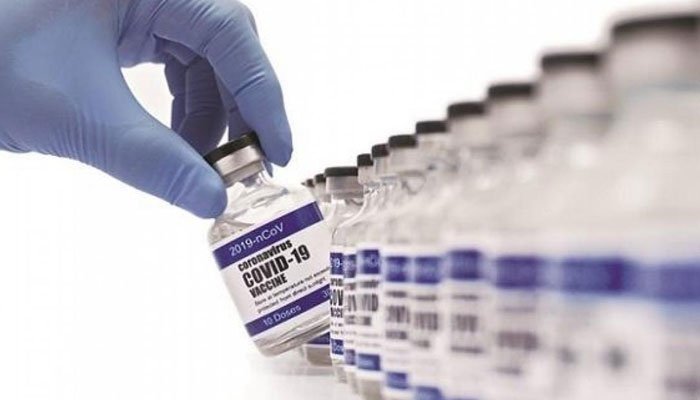China will contribute 10 million vaccine doses to COVAX programme
February 03, 2021

- China says it will provide 10 million coronavirus vaccine doses to the COVAX programme
- Three Chinese companies have applied to join the COVAX initiative for approval
- COVAX programme will roll out vaccines to low-and-middle-income countries this month
BEIJING: The foreign ministry of China on Wednesday announced that the country will contribute 10 million doses of COVID-19 vaccines to global vaccine sharing scheme COVAX after three Chinese companies have applied to join the initiative for approval.
The COVAX scheme, backed by the World Health Organisation (WHO) and GAVI vaccine alliance, is due to start rolling out vaccines to low-and middle-income nations this month, with 2 billion of 3 billion doses expected to be delivered this year.
Read more: Pakistan may receive Pfizer-BioNTech vaccine under COVAX programme
China's foreign ministry said in January that Sinovac Biotech, China National Pharmaceutical Group (Sinopharm) and CanSino Biologics have applied to join the scheme.
Wang Wenbin, a spokesman at the Chinese foreign ministry, announced the supply plan at a regular media briefing on Wednesday, without going into details.
The three companies were not immediately available for comment.
The WHO, which is reviewing the applications, could make decisions on vaccines made by Sinopharm and Sinovac in March at the earliest, according to a COVAX internal document seen by Reuters.
Vaccines from Sinopharm and Sinovac are already being rolled out in several countries, including Brazil, Indonesia, Turkey and the United Arab Emirates.
Cansino's vaccine is approved for use in China's military.
None of the three companies have released detailed efficacy data of their vaccines to the public yet, but limited early access to rival shots developed by Western drugmakers have prompted many developing countries to sign up for Chinese vaccines.
Read more: WHO vaccine scheme risks failure, leaving poor countries no COVID shots until 2024











